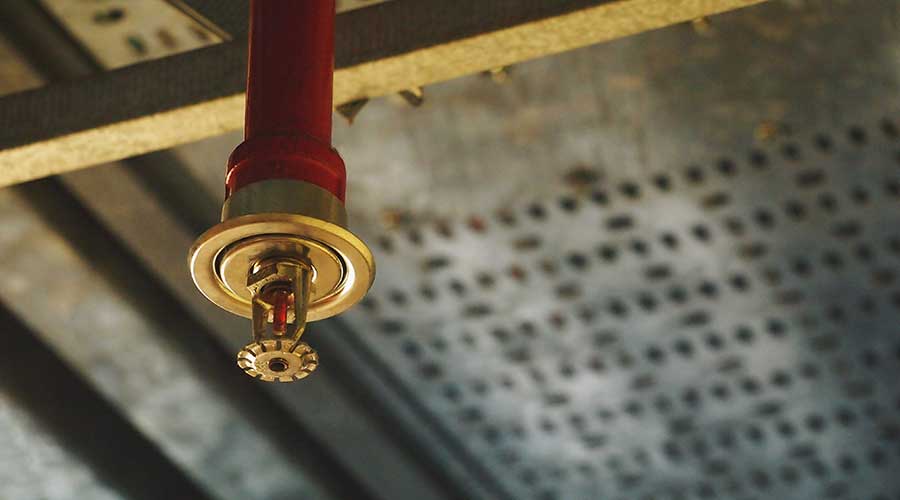Fire sprinklers and alarms need to function properly so they can alert people and suppress a fire when the time calls for it. Unfortunately, like any technology, there are things that can cause them to malfunction and not work. ln this manufacturer roundtable, Healthcare Facilities Today speaks with leading fire alarms and sprinklers manufacturers about what can cause fire sprinklers and alarms to not function properly.
Is there anything that can impede the functioning of sprinklers or alarms?
“Closed valves are one of the leading causes of failure of fire protection systems. Additional concerns include blocking sprinkler spray with ceiling mounted items (or storage items that are stored too high) and failure to properly maintain the systems. On-going and frequent maintenance and inspection of sprinkler systems can mitigate these issues.”
—Donald Hopkins, Jr., vice president of process improvement, Jensen Hughes
“There are many things working against sprinkler systems that can cause them to not function. The number one statistic for why sprinklers fail is a closed valve. Other things such as obstructions to the spray pattern in the form of light fixtures or the addition of new walls, can impact where water lands. Paint overspray can land on the sprinkler’s thermal element and delay or prevent it from operating.
Internal pipe corrosion and sediment can be found in sprinkler system piping and cause blockages of the waterway. Following the minimum routine requirements for inspection, testing, and maintenance of sprinklers as outlined in NFPA 25, The Standard for Inspection, Testing, and Maintenance of Water-Based Fire Protection Systems can help prevent impairments of the system.”
—Emily Martin, lead technical instructor, Johnson Controls
Jeff Wardon, Jr. is the assistant editor for the facilities market.

 Healthcare and Resilience: A Pledge for Change
Healthcare and Resilience: A Pledge for Change Texas Health Resources Announces New Hospital for North McKinney
Texas Health Resources Announces New Hospital for North McKinney Cedar Point Health Falls Victim to Data Breach
Cedar Point Health Falls Victim to Data Breach Fire Protection in Healthcare: Why Active and Passive Systems Must Work as One
Fire Protection in Healthcare: Why Active and Passive Systems Must Work as One Cleveland Clinic Hits Key Milestones for Palm Beach County Expansion
Cleveland Clinic Hits Key Milestones for Palm Beach County Expansion